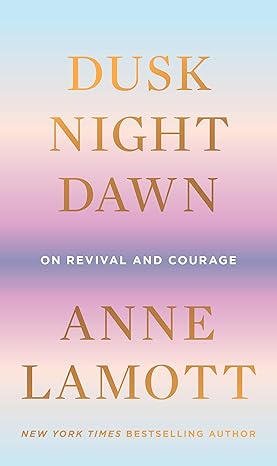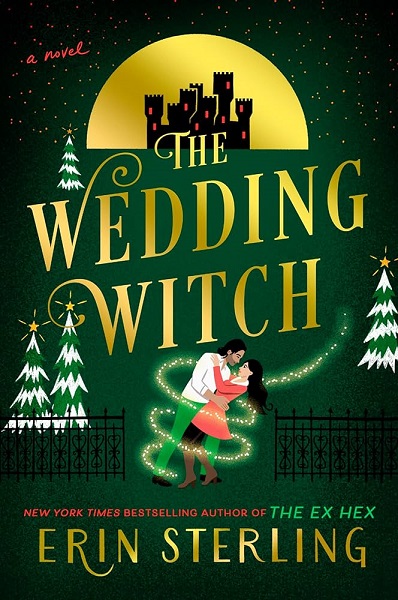I’m excited to be participating in the blog tour for The Thinking Woman’s Guide to Real Magic, by Emily Croy Barker, with a Q&A, a review, and a giveaway! Make sure you keep reading; my review follows the Q&A, and the giveaway is at the bottom.
Q. Which of the characters in THE THINKING WOMAN’S GUIDE TO REAL MAGIC did you most enjoy writing?
A. Aruendiel, no question. He says exactly what he thinks, and he doesn’t mind giving offense to anyone. Not something that most of us can get away with in our daily lives.
Of course, Ilissa was also a lot of fun, too. Because she’s also honest—Faitoren can’t tell lies—but at the same time, she’s thoroughly deceitful.
Q. Are any parts of this novel autobiographical?
A. You mean, is it about the time I stumbled into an alternate world and started studying magic? Sadly, no.

There were things in my life that I deliberately borrowed for the novel. The way Aruendiel talks about other magicians—I was thinking of how my father, who was a painter, used to talk with his artist friends about other artists, about who was doing good work and who wasn’t. My dad was the kindest and most gentle person ever, but he was ruthless when it came to criticizing bad art. It’s the idea that you have a calling that you have to follow and you don’t sell out.
I gave Nora some of my interests—a penchant for memorizing bits of poetry, a love of cooking—although she’s much better at both things than I am. She’s also braver than me. You could never get me to go up a cliff like the one at Maarikok, even with a levitation spell! And I let her take a path that I considered but never took—going to grad school in English.
Q. Your heroine, Nora Fischer, is swept away by magic into a kind of too good to be true existence. Even though a part of her knew it wasn’t right she stayed. Why would she allow herself to be easily enchanted?
A. As Aruendiel himself would point out, Faitoren enchantments are very hard to fight, because they give you something you want. Nora was feeling bruised and defeated, and suddenly she had everything that she thought she was missing.
I also think the kind of idealized femininity that Ilissa offers Nora—being beautiful, being the belle of the ball, having this perfect romantic love—is a very seductive thing, even for someone like Nora who has read all the feminist theorists and has really chosen the life of the mind. Maybe especially for someone like Nora.
Q. You have so many literary references, John Donne, Miguel de Cervantes, William Carlos Williams, Alice in Wonderland and Grimm’s Fairytales, but it’s Jane Austen’s Pride & Prejudice that Nora ends up with as her only possession in the alternate world. What is the significance of this particular book? Any personal connection to it?
A. Well, Pride and Prejudice is so modern in many ways, although written and set in a premodern time. So it seemed like a good match for A Thinking Woman’s Guide, where a contemporary woman is thrown into a world where women are still second-class citizens, at best. And Pride and Prejudice reflects some of the themes that I was interested in—an intelligent woman engaging with a man who has both higher status and worse manners than she does—without being too closely parallel to the plot of my story. Finally, I love Pride and Prejudice! And so do many other readers. So I hoped it might resonate with those who read my novel.
Q. Words are a powerful tool and language is a very important status symbol in Nora’s new world. Women are uneducated and don’t speak to men the same way Nora does; something she is repeatedly frustrated by. How did you develop Ors, the language Nora must learn in order to communicate?
A. Language reflects society, so as I thought about Aruendiel’s world, I tried to imagine what sort of linguistic rules it would have to help keep women in their place. And as anyone who has studied a foreign language knows, there are all kinds of subtleties that you don’t pick up right away. You can make blooper after blooper, sometimes for years. So Nora keeps bumping up against things like the feminine verb endings, which she never noticed until Aruendiel rather officiously points them out to her.
I was also inspired by how Tolkien, who was a philologist, essentially began imagining Middle-Earth by inventing various Elvish names. He wrote poems about these characters and, eventually, fiction. I thought, wow, what a powerful tool to create a believable fantasy universe, to develop some kind of logical linguistic framework that underlies your story.
Q. You’re a journalist by trade. What was it like, switching to fiction? Where do you write? Do you set hours or just put pen to paper when inspiration strikes?
A. It took me a while to feel comfortable writing fiction. It’s a different kind of narration. Suddenly, after years of having to be super-careful about collecting facts and double-checking them, I could make everything up. That felt wonderful! But what exactly do you include, what do you leave out? Beginning writers are always told, “Show, don’t tell.” Well, in fact there’s a lot you have to simply tell, or you’ll write twenty pages and your character will still be finishing breakfast.
The journalistic skill that I found most useful in writing fiction was simply the ability to sit in front of the computer and write. Even if you’re just trying to write, even if what you’re writing isn’t great at the moment or if all you have to show after three hours is three sentences. And then to do it again the next day. It doesn’t matter if you have to rewrite it all over again—because you’ll find something that’s worth keeping, or you’ll learn what not to do. The important thing is to keep going.
Usually I write at home on my laptop—sometimes on the train when I travel. I write best during the day. If I try to write at night, I’m usually too tired to get very far. Or occasionally I’ve had the opposite problem—I get really into it and then suddenly it’s way past my bedtime and I’m useless the next day. So starting out, I wrote for a couple of hours every weekend. Then it became every spare moment of every weekend. I still owe huge apologies to so many of my friends for turning down all their lovely invitations to go to museums, parties, movies, et cetera, over the past seven years.
Q. Who would be in your dream book club? Where would you meet and what would you talk about?
A. Henry James, Charlotte Brontë, Scott Fitzgerald, Mary McCarthy, Zadie Smith, and couple of my friends. We’d meet at Florian’s in the Piazza San Marco every third Tuesday in the month—this is a dream, right?—and talk about whatever I happen to be reading at the moment. I imagine it would be a lively group.
Q. Are you a fan of other fantasy novels?
A. Yes, although I certainly haven’t read everything that’s out there. I tend to like the denser, more literary kind of fantasy. Unlike Nora, I love Tolkien. Also Neil Gaiman, Susanna Clarke, Alice Hoffman, Margaret Atwood, Ursula LeGuin, and Kelly Link. Kate Atkinson is best known now for her Jackson Brodie mysteries, but I’m really glad that I didn’t read her Human Croquet until after I wrote The Thinking Woman’s Guide, because in some ways that’s the book I wanted to write.
Q. Your writing is loaded with references from history, literature, and fantasy. What sort of reader did you envision for this series?
A. I tried to write the kind of novel I would want to read, so I guess in that sense I wrote it for myself. And as the book took shape and it became clearer that I would actually finish a draft at some point, I decided I would send it first to one of my oldest friends to see if she thought it was any good. She and I grew up watching Star Trek and Monty Python, reading Sherlock Holmes and The Black Stallion and Jane Eyre, and doing the ultimate in geekdom—taking Latin—so I trusted her judgment. She liked it, so that encouraged me to keep revising.
Beyond that, I was thinking that it might appeal to some of the adults who loved Harry Potter but who wanted more of a adult perspective and a strong female character at the center of the novel.
Q. The Thinking Woman’s Guide To Real Magic ends on a cliffhanger. Can you hint at what’s next for Nora and Aruendiel?
A. I’m pretty sure that Nora will find her way back to Aruendiel’s world. The two of them really need to talk and to be straight with each other, don’t you agree? And of course she has a lot more to learn about magic—and how to use it properly.
* * *
Review:
Confession time: I’m not quite finished with The Thinking Woman’s Guide to Real Magic. And you know what? I’m OK with that, because I’m really enjoying it and I don’t want it to end. (Especially since I know it ends on a cliffhanger of sorts.) Instead of rushing through, I find I want to read more slowly. Emily Croy Barker mentioned her love of denser fantasy, and it shows. This isn’t an action-packed novel — though there is certainly plenty of action, and tension enough to keep you reading. But there are also more leisurely sections, and much more of Nora’s interior life than you would find in a less character-driven, faster-paced book.
I think all of us who read fantasy have daydreamed about finding our way into another world, one where magic actually works. Nora gets to live that dream (though it wasn’t really her dream to begin with) and she finds that it’s not all fairy godmothers and pumpkin juice. It takes her a while to figure that out, of course, and her awakening is rather brutal. Then she has to come to terms with the new reality in which she finds herself.
I love the title, The Thinking Woman’s Guide to Real Magic. Nora is indeed a thinking woman, a woman to whom the life of the mind has been almost everything. Yet during the initial part of the book, after she stumbles into the alternate world, there’s a period in which she is (as Emily says in the Q&A) easily lulled, seduced by the magic around and on her. It was frustrating and yet very believable to watch this intelligent but insecure and hurting young woman sinking into a false happiness, a drugged and nearly mindless haze — and doing it willingly. I was relieved when she finally came out of it enough to question what was going on, both for her sake and because she’s a much more interesting character when she’s using her mind!
Of course, Nora’s life in an essentially feudal society is far from easy to adjust to: a modern woman, accustomed to equality of both class and gender, suddenly immersed in a society in which men and aristocrats hold the power, and women are generally illiterate. She has to teach herself to read Ors, and even to work her first bit of magic. I admire and relate to her anger and her stubborn determination to succeed, to reclaim for herself something akin to the intellectual life she had as a graduate student. At the same time, I’m fascinated by the differences between Aruendiel’s world and ours, in how those are reflected in the language and customs and even personal names.
I’m also having fun trying to spot all the literary allusions and parallels. There’s the obvious resonance with Pride and Prejudice that Emily talked about above, particularly as Nora and the prickly magician Aruendiel are getting to know one another. But there are others, both before and after she enters that other world — John Donne, Emily Dickinson, Cinderella, Irish and British folk myths, Grimm’s fairy tales, even Shakespeare. Many of them are almost throwaway moments — a brief quotation, a reference to a woman with snakes for hair — but it’s always satisfying to spot one.
There’s humor in The Thinking Woman’s Guide to Real Magic, too. Sometime’s it’s subtle; occasionally it makes me chuckle aloud, as in this passage, in which Aruendiel and another magician are discussing how to find a missing colleague:
“We’ll start by visiting following Ilissa’s trail, visiting the places that she has visited.”
“How do you propose to do that?” [Aruendiel] asked, shaking his head. “By asking the walls what they saw? By wood and water, that will take forever. Once walls start talking, they never shut up.”
As much as he annoyed me initially, Aruendiel is growing on me. He’s brilliant — and he knows it. He can be disdainful, dismissive, and arrogant, then display a sudden flash of humor or act with unexpected compassion. He’s not, at first or second or even third or fourth glance, a likely romantic hero, and if (as the Pride and Prejudice parallels suggest) he and Nora are headed toward a relationship, it’s likely to be a rocky road before they get there. But he’s never boring, and his attitude provides Nora with just the prod she needs at times.
The publicity for The Thinking Woman’s Guide to Real Magic suggests the book will appeal to fans of Deborah Harkness, and Emily herself thinks it will appeal to adult fans of Harry Potter. Both of those are true (certainly in my case!), but I’ll also add that if you enjoyed Bee Ridgeway’s The River of No Return, you’ll probably like The Thinking Woman’s Guide to Real Magic. TTWGtRG is more classic fantasy, with its Faitoren (fae), medieval-analog society, and magic, but both books have that somewhat slower, more deliberate pace of a literary novel. Emily Croy Barker has written a winner, one I plan to keep on my shelves for a long while.
* * *
About the author: A graduate of Harvard University, Emily Croy Barker has been a magazine journalist for more than 20 years. She is currently executive editor at The American Lawyer magazine. This is her first novel. (biography source: author’s website)
Connect with Emily Croy Barker:
Rating: 4 stars
Category: Fantasy; romance
Publisher: Pamela Dorman Books (Penguin Group)
Release date: August 5, 2013
Book source: Digital review copy from the publisher via NetGalley & Edelweiss
Buy the book:
Thanks to Viking, I have one copy of The Thinking Woman’s Guide to Real Magic to give away! Just fill out the Rafflecopter widget below. (I’m sorry, you have to be a US resident for this giveaway.)
 There were things in my life that I deliberately borrowed for the novel. The way Aruendiel talks about other magicians—I was thinking of how my father, who was a painter, used to talk with his artist friends about other artists, about who was doing good work and who wasn’t. My dad was the kindest and most gentle person ever, but he was ruthless when it came to criticizing bad art. It’s the idea that you have a calling that you have to follow and you don’t sell out.
There were things in my life that I deliberately borrowed for the novel. The way Aruendiel talks about other magicians—I was thinking of how my father, who was a painter, used to talk with his artist friends about other artists, about who was doing good work and who wasn’t. My dad was the kindest and most gentle person ever, but he was ruthless when it came to criticizing bad art. It’s the idea that you have a calling that you have to follow and you don’t sell out.







































Rita_h
I have been waiting for this book to come out. It strikes me as a fun, dreamy adventure, which is a nice change from intense suspense, which I read often. Thanks for the chance to win.
Lark @ The Bookwyrm's Hoard
It starts out a bit dreamy, but there’s plenty of gritty reality (or rather, gritty pseudo-reality) after Nora escapes. There’s some suspense, too, but I wouldn’t call it intense. I think you’ll enjoy it!
Rita_h
Addendum to my previous post: The hardest thing to adjust to would be lack of sanitation, teehee. If it is way back in the past, they weren’t known for cleanliness and unless I could magically wash up, this would be a problem for me.
Lark @ The Bookwyrm's Hoard
That would definitely be a major drawback of a medieval-style fantasy life! And even if you could bathe magically, what about everyone around you?
alexandrampatterson.com
I agree wholeheartedly about it being related to The River of No Return — it was my first thought! I also thought that it had a bit of Tolkein in it with all of the fey scenes; what do you think?
I also reviewed The Thinking Woman’s Guide to Real Magic if you’d like to take a look: http://alexandrampatterson.com/2013/08/01/book-review-emily-croy-barker/
Lark @ The Bookwyrm's Hoard
Re the Tolkien — yes, but also the whole Irish/Celtic/British mythos of fairies or elves who cast a glamour on you and take you into their halls under the hill.
I’ll go check out your review right now!